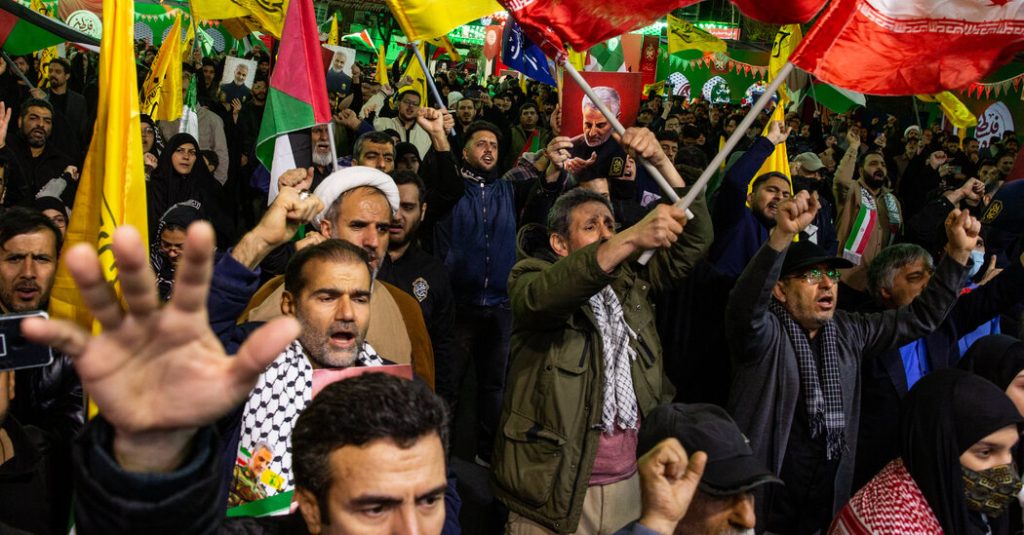President Ebrahim Raisi of Iran condemned Israel’s airstrikes on an Iranian embassy compound in Damascus, Syria, which resulted in the deaths of three top Iranian commanders. He stated that the attack, which also killed four other officers, was a violation of international law and vowed that it would not go unanswered. Supporters of the Iranian government took to the streets, calling for retaliation against Israel. Iran’s foreign minister summoned the Swiss ambassador to deliver a message to Washington, demanding that the U.S. answer for Israel’s actions as its ally.
The strike on the Iranian Embassy complex in Damascus marked one of the deadliest attacks in the ongoing shadow war between Israel and Iran. President Raisi and other Iranian officials did not provide details on how Iran might respond to the airstrikes. The spokesman for the Iranian Parliament’s leadership emphasized that an appropriate response was a national request by the Iranian people. In Washington, the National Security Council denied any involvement in the strike, indicating that the U.S. was not aware of it beforehand. The United States communicated this message directly to Iran, through an unnamed official.
In various cities across Iran, including Tehran, Tabriz, and Isfahan, large crowds gathered to demand revenge against Israel. Chants of “Death to Israel” and “Death to America” rang out as protesters waved Palestinian and Iranian flags. Some opponents of the Iranian government continued with nature celebrations in parks in northern Tehran, despite security forces dispersing them. The strikes in Damascus took place on religious and national holidays in Iran, adding to the already charged atmosphere in the country.
The United Nations Security Council scheduled an emergency meeting to discuss Israel’s attack, following a request by Russia, a close ally of Iran. Iran’s U.N. ambassador sent a letter to the world body stating that the attack on diplomatic buildings was a violation of international law and posed a threat to regional peace and stability. The response from Iran to Israel’s strikes remained uncertain, with questions about whether Iran would directly target Israel in a military attack or continue to support militants in the region. Hezbollah, backed by Iran, vowed that Israel’s actions would not go unpunished.
As tensions escalate between Iran and Israel, the international community closely monitors the situation. The possibility of a broader conflict involving the United States adds to the complexity of the situation. Iran’s Supreme Leader, Ayatollah Ali Khamenei, could potentially declare jihad against Israel, further escalating the crisis. The outcome of Iran’s response to Israel’s strikes will have significant implications for regional security and stability. Further developments will be closely watched by world leaders and analysts as the situation unfolds.


